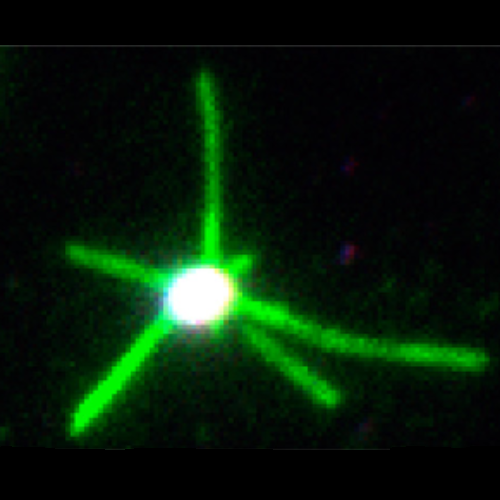The Centrosome Is a Selective Condensate that Nucleates Microtubules by Concentrating Tubulin.
Centrosomes are non-membrane-bound compartments that nucleate microtubule arrays. They consist of nanometer-scale centrioles surrounded by a micron-scale, dynamic assembly of protein called the pericentriolar material (PCM). To study how PCM forms a spherical compartment that nucleates microtubules, we reconstituted PCM-dependent microtubule nucleation in vitro using recombinant C. elegans proteins. We found that macromolecular crowding drives assembly of the key PCM scaffold protein SPD-5 into spherical condensates that morphologically and dynamically resemble in vivo PCM. These SPD-5 condensates recruited the microtubule polymerase ZYG-9 (XMAP215 homolog) and the microtubule-stabilizing protein TPXL-1 (TPX2 homolog). Together, these three proteins concentrated tubulin ∼4-fold over background, which was sufficient to reconstitute nucleation of microtubule asters in vitro. Our results suggest that in vivo PCM is a selective phase that organizes microtubule arrays through localized concentration of tubulin by microtubule effector proteins.

- Cell. 2017 Jun 1;169(6):1066-1077.e10
- 2017
- Cell Biology
- 28575670
- PubMed
Enabled by:
